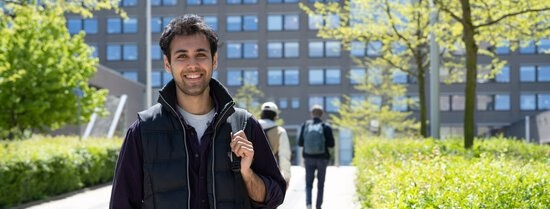The study programme in a nutshell
Mode of education
The master programme Governance of Migration and Diversity provides state-of-the-art courses and training given by dedicated scholars from five academic disciplines. During classes interaction amongst students and between students, and professors, is stimulated.
Curriculum
Besides the general mandatory disciplinary courses, you will follow track-specific courses. The general and the track-specific parts each compromise 50% of the master programme. During the programme several site visits are organised to engage with firsthand experiences of governance issues. In the past years we have inter alia visited the Essalam Mosque and an asylum seekers center.
Below you can find the curriculum of the Sociology track offered by Erasmus University Rotterdam.
The curriculum is subject to alteration. No rights may be derived from this information (including the information via the links).
